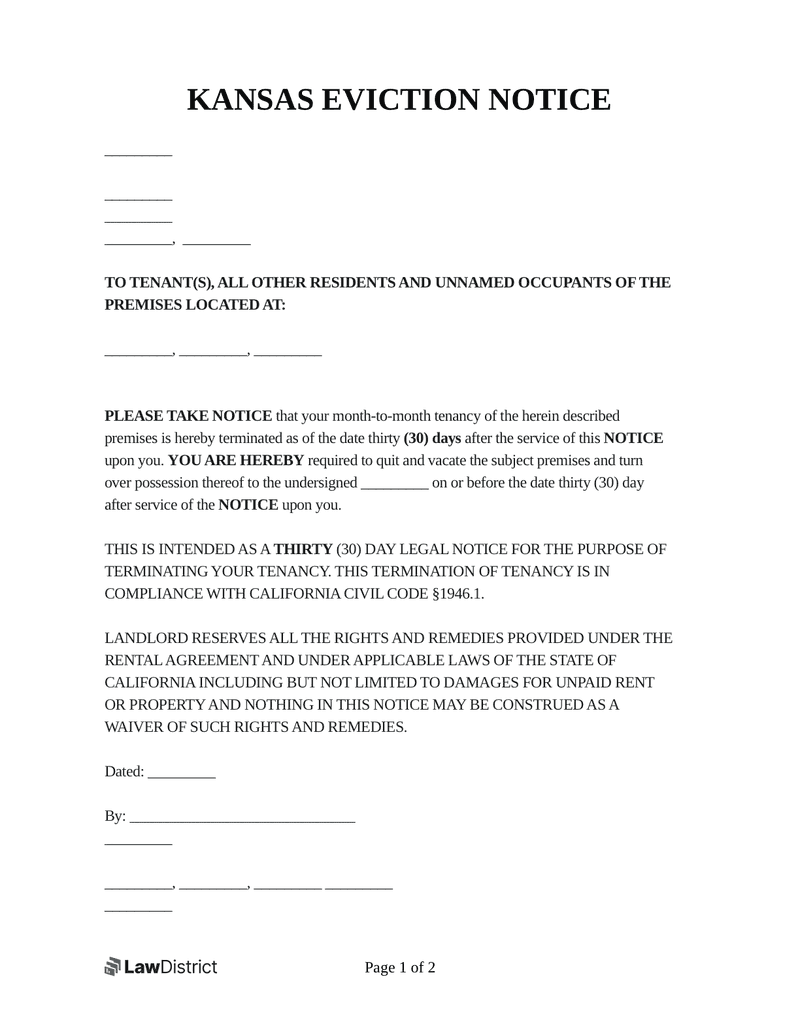A legal eviction in Kansas can only be made for a number of acceptable reasons. This means that landlords must provide a valid basis along with the correct amount of days’ notice in order to comply with the legal eviction process within the state.
Not using the correct KS legal document, in this case, can lead to delays or even court dismissal of the eviction, so it is important to choose the right type.
3-Day Notice to Quit (Non-Payment)
If a tenant doesn’t comply with the rental payment schedule, the landlord may present them with a 3-Day Notice to Quit. This obliges them to pay rent or quit within 72 hours.
If the tenant complies and pays the rent then the notice will be nullified. If they refuse to pay or vacate the property, the landlord will be able to pursue the matter further through the courts.
10-Day Notice to Quit (Non-Payment)
This notice has to be used for tenancies with a duration of three months or longer. If the tenant doesn’t comply with the rental payment schedule, the landlord may present them with a 10-Day Notice to Quit. This obliges them to pay rent or quit within 10 days.
The tenant can remediate by paying the rent and the notice will be canceled. If they refuse to pay or vacate the property, the landlord will be able to pursue the matter in court.
14-Day Notice to Quit (Non-Compliance)
If the tenant commits a lease violation the landlord can issue a 14-Day Notice to Quit. This will give the resident 14 days to leave the property or to cure the problem that the landlord has raised (if allowed).
This can be conditional or unconditional depending on the severity of the infraction. In the case of an incurable notice, the tenant will have no chance to cure or fix the violation. If they refuse to comply within the time given, the landlord will then be able to file a court case against them.
30-Day Notice to Quit (2nd Non-Compliance)
If the tenant commits the same lease violation within a period of six months, the landlord can issue a 30-Day Notice to Quit. With this notice, there is no option for the tenant to remediate, and they shall be forced to leave the property within 30 days.
30-Day Notice to Quit (Month-to-Month)
30 Day-Notice to Quit documents are used to evict month-to-month tenants or those who don’t have a fixed lease without providing any given cause. This allows the landlord to inform the tenant that they must vacate the property within 30 days or face a legal challenge.
